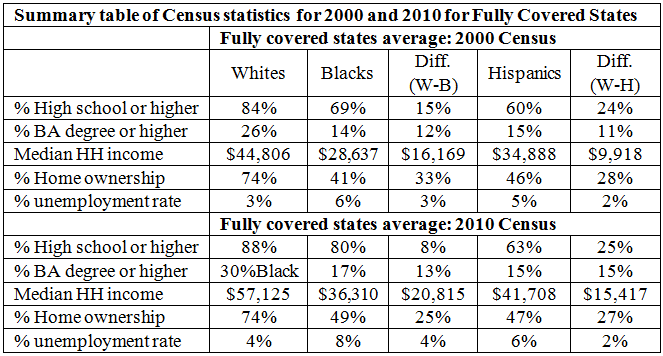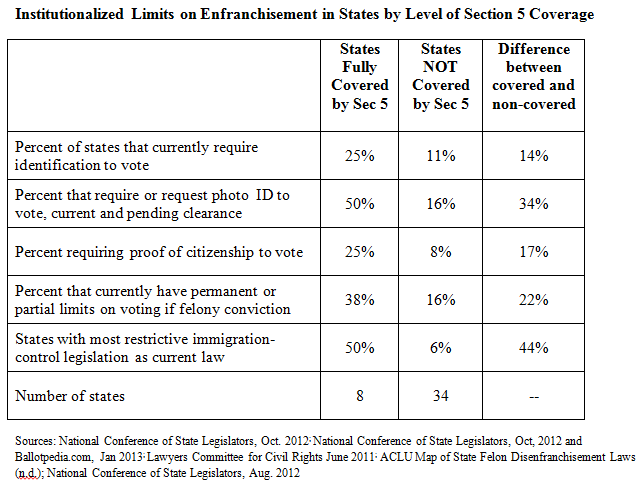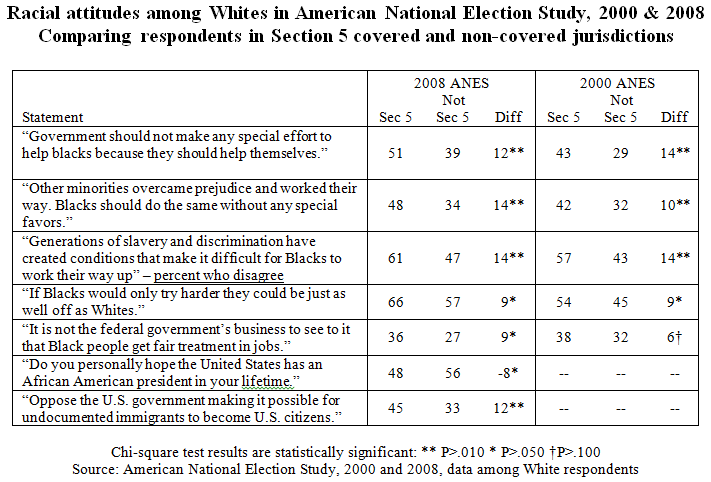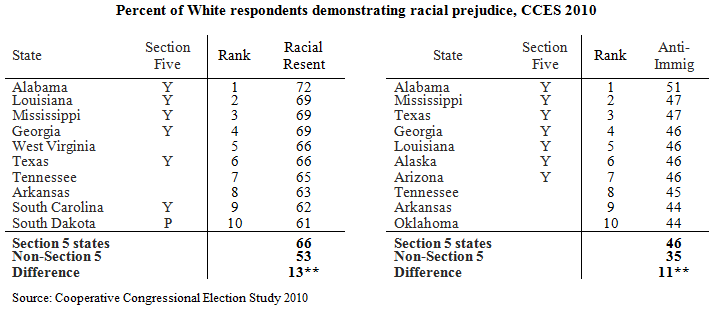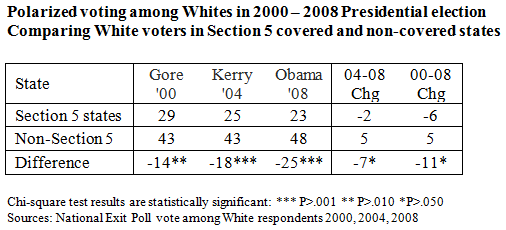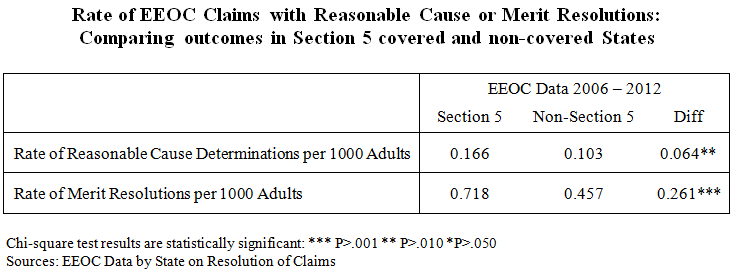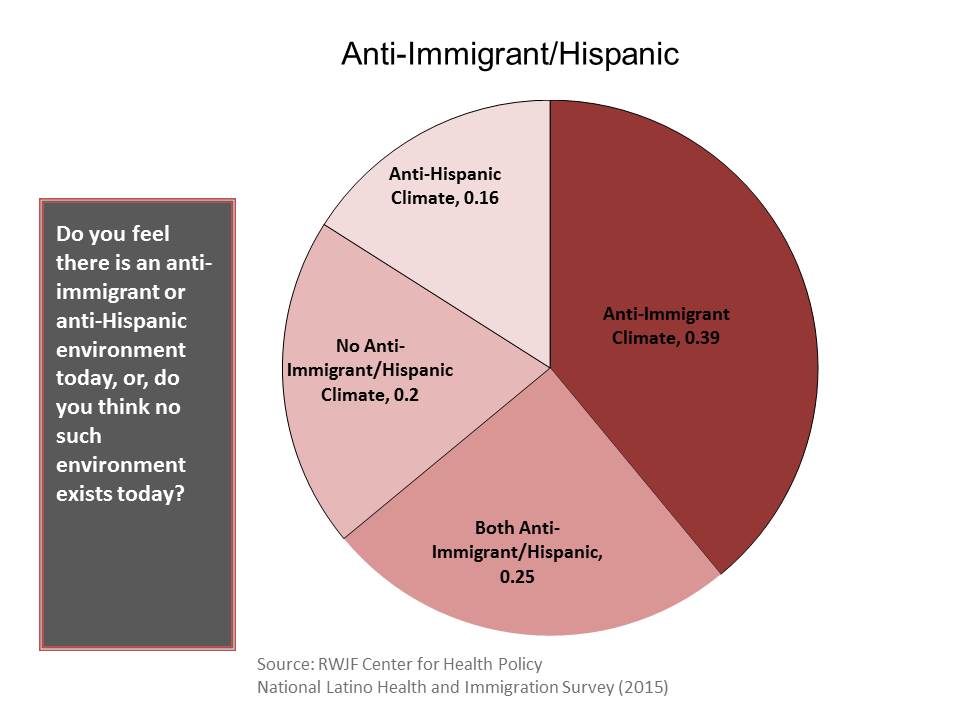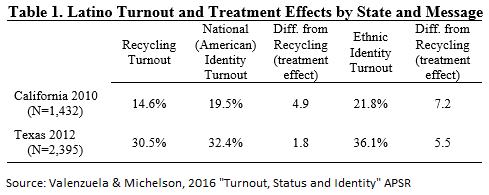Research from 2013 documents higher rates of prejudice, voting discrimination and inequality faced by African Americans and Latinos in jurisdictions fully covered by Section 5 of the Voting Rights Act.
On Tuesday the U.S. Supreme Court struck down Section 4 of the Voting Rights Act, despite extensive social science research that racial discrimination and prejudice remain prevalent especially in southern states, which Section 4 provided a mechanism that such “covered jurisdictions” get federal approval before changing voting laws.
The research was based on a report by a consortium of political science and law scholars from several universities who filed an amicus or “friend of the court” brief in the U.S. Supreme Court case about voting rights out of Shelby County, Alabama. Kareem Crayton, associate professor of Law at the University of North Carolina is the lead researcher, and joined by Latino Decisions co-founder Matt Barreto, an associate professor of Political Science at the University of Washington, among other notable scholars. While Chief Justice John Roberts cited data on voter registration and voter turnout in the majority opinion that struck down Section 4, explicit vote denial is no longer the central focus of a majority of Department of Justice preclearance reviews. Rather, the focus today is on what Congress and the Courts have called second generation discrimination in which minority votes are diluted and made less effective than those cast by Whites. In their decision Tuesday, the majority ignored evidence of vote dilution, even as extensive social science research documents high rates of voting inequality faced by African Americans and Latinos in jurisdictions fully covered by Section 5 of the Voting Rights Act.
After studying census records from 2000 to 2010, voting records from 2000 to 2012, public opinion data, lawsuits about the Voting Rights Act and all relevant state legislation in recent years, Crayton, Barreto and the other scholars strongly disagree.
Their research found “clear and statistically significant evidence” that discrimination is still widespread today, though often in different forms, and even remains more widespread in Section 5-covered jurisdictions than elsewhere.
The scholars found that minorities in Section 5-covered jurisdictions continue to suffer from socioeconomic disparity that hinders their ability to participate in the political process. Those jurisdictions, they found, are also twice as likely as non-covered areas to adopt policies that make voting more difficult for African-Americans and language minorities. For example, last year a Latino Decisions blog post by Prof. Gabriel Sanchez documented that in Texas, racial and ethnic minorities were significantly less likely to possess a valid photo ID card for purposes of voting than were Whites.
Finally, their research found an extensive pattern of racially polarized voting — where Whites vote as a bloc against minority candidates — and racial prejudice against minorities that was statistically distinct and more negative in Section 5-covered jurisdictions, than the country overall. (Results posted below)
Professor Luis Fraga of the University of Washington, a national expert on the Voting Rights Act and co-author of the report said, “We all look forward to the day when such legislation will not be necessary. Our current reality, however, makes very clear that there is a continued role for the Justice Department and federal courts to guarantee that African-Americans and language minorities do not have their right to vote limited by states and local jurisdictions.”
Barreto, who holds an adjunct appointment in the UW School of Law, said the brief compiles objective empirical data to conclude that minority voters in Section 5-covered jurisdictions face more discrimination and racial prejudice, and have systematically less access to resources than White voters.
“These facts directly dispute the Shelby petitioners’ claims and demonstrate the continuing need for the Voting Rights Act,” Barreto said.
Other co-authors of the brief are professors Terry Smith of DePaul University, Jane Junn of the University of Southern California and Janelle Wong of the University of Maryland.
While many opinions and theoretical arguments have been offered, the Crayton et. al. brief relies heavily on nationally reputable data sources from 2000 to present in reaching the conclusion that Congress acted appropriately in 2006. The principle findings reviewed in the brief can be found here, and full copy of the brief is posted online here
